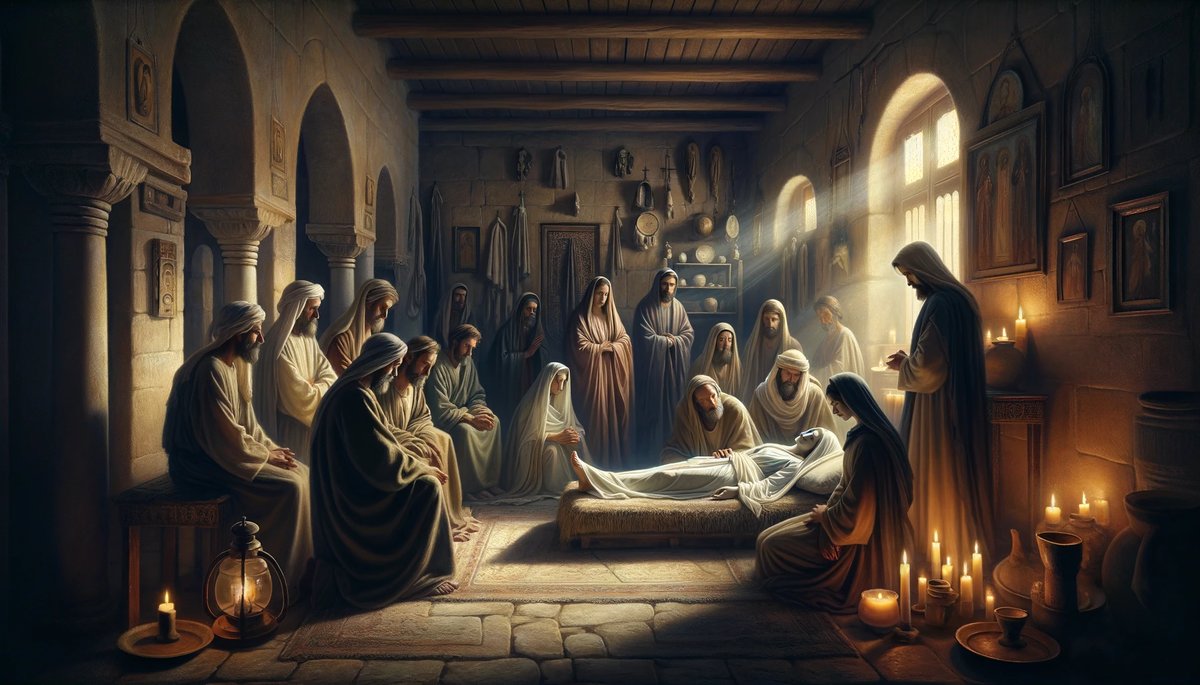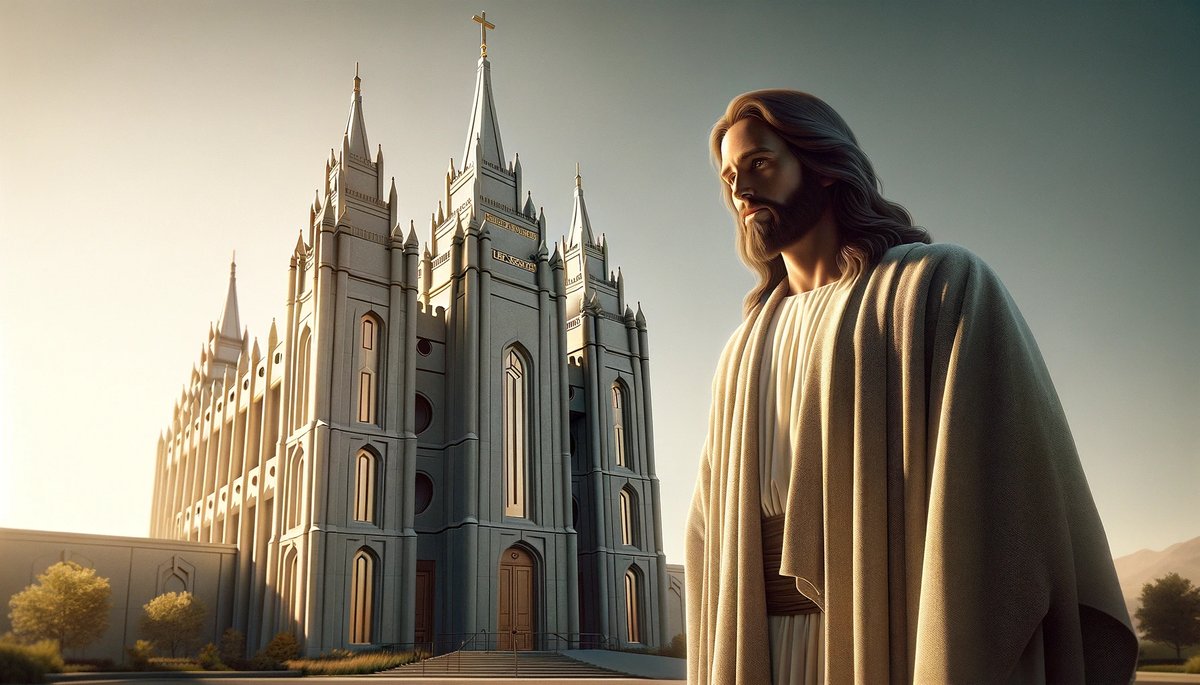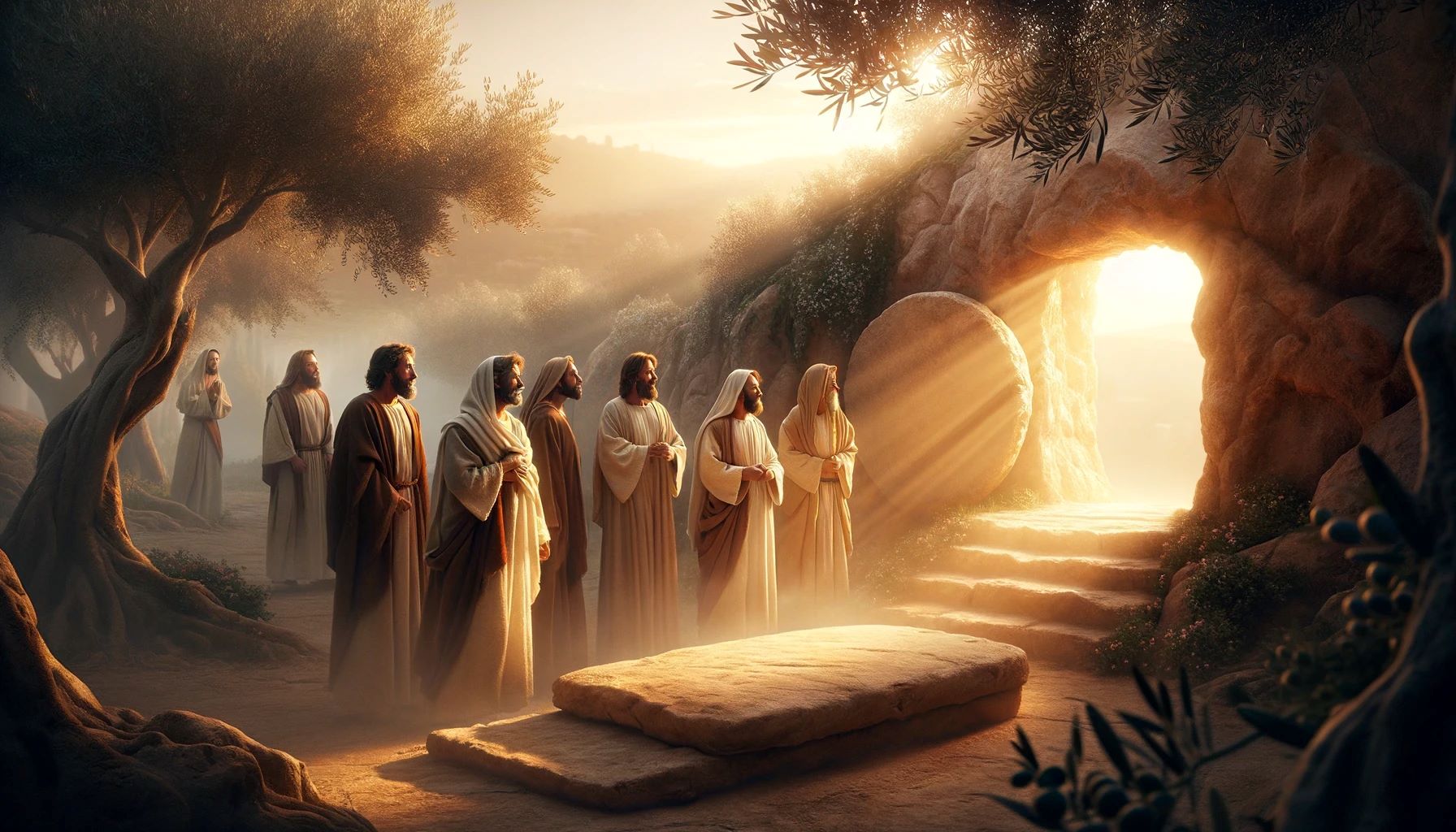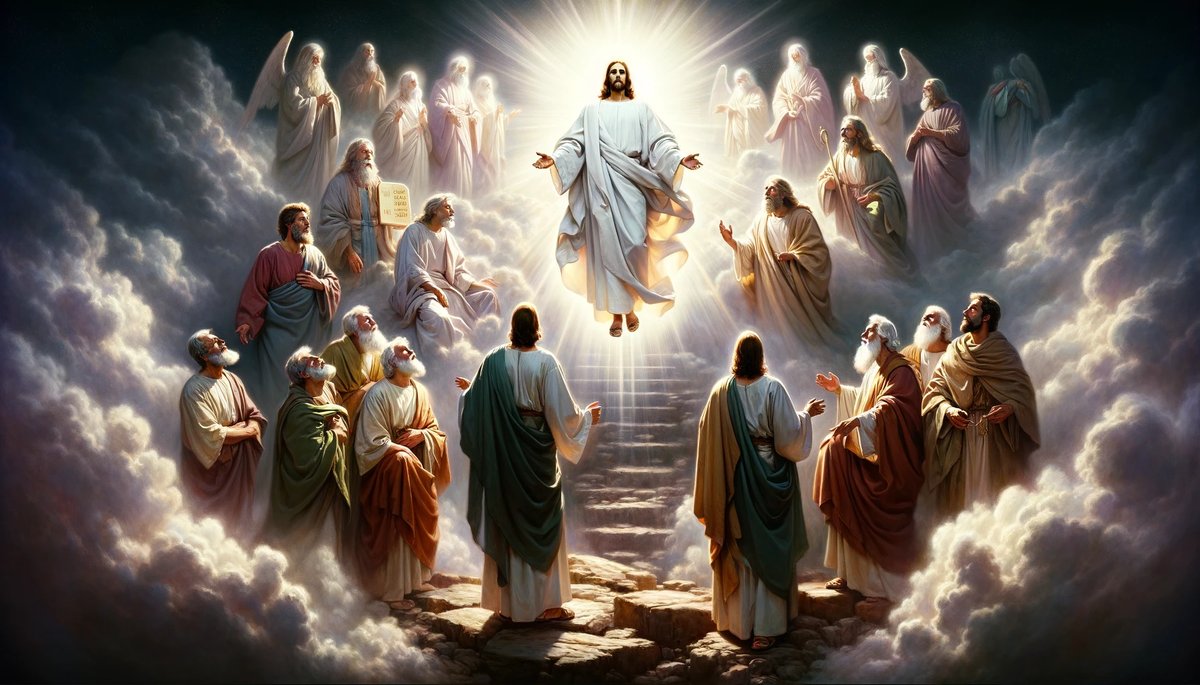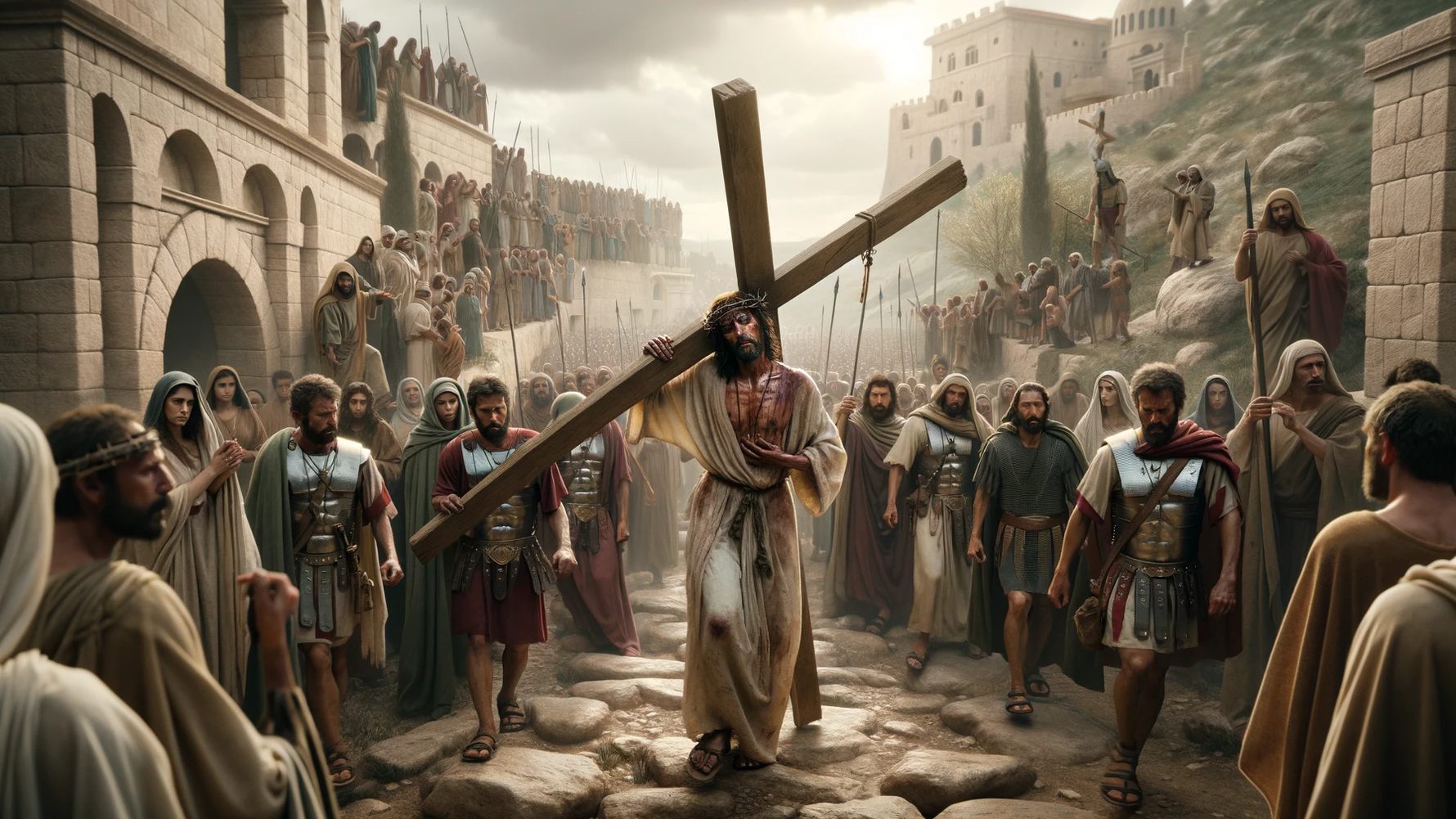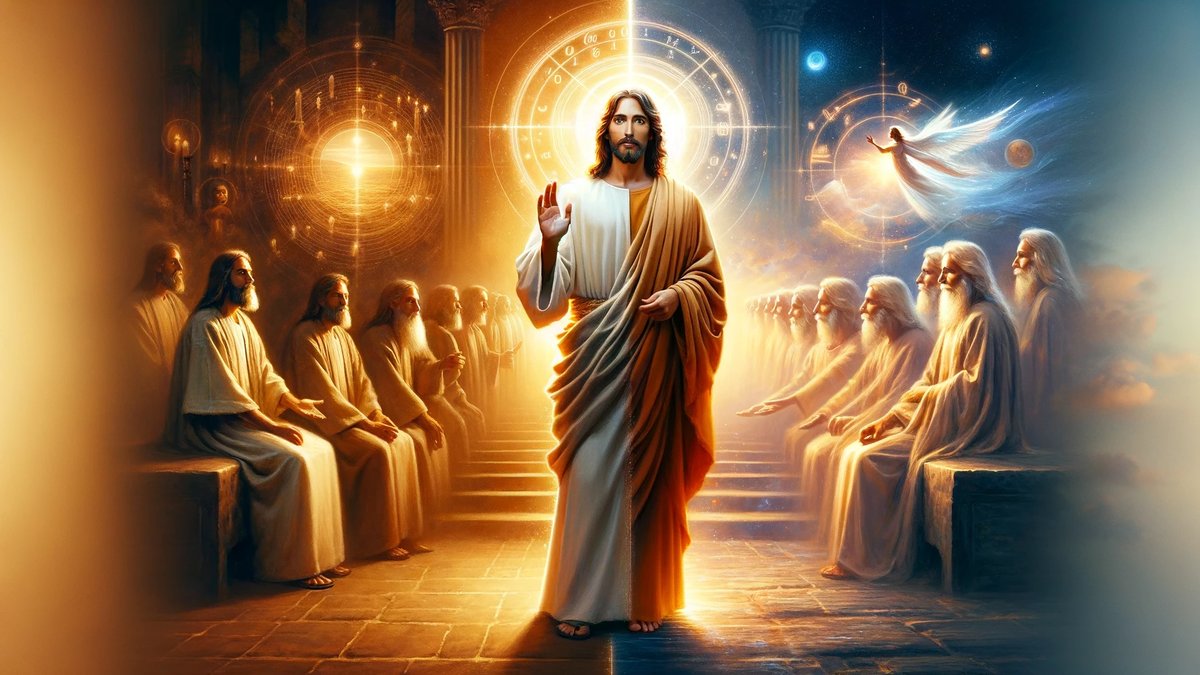Home>Christian Videos>Bible Stories>On What Day Was Jesus Christ Resurrected
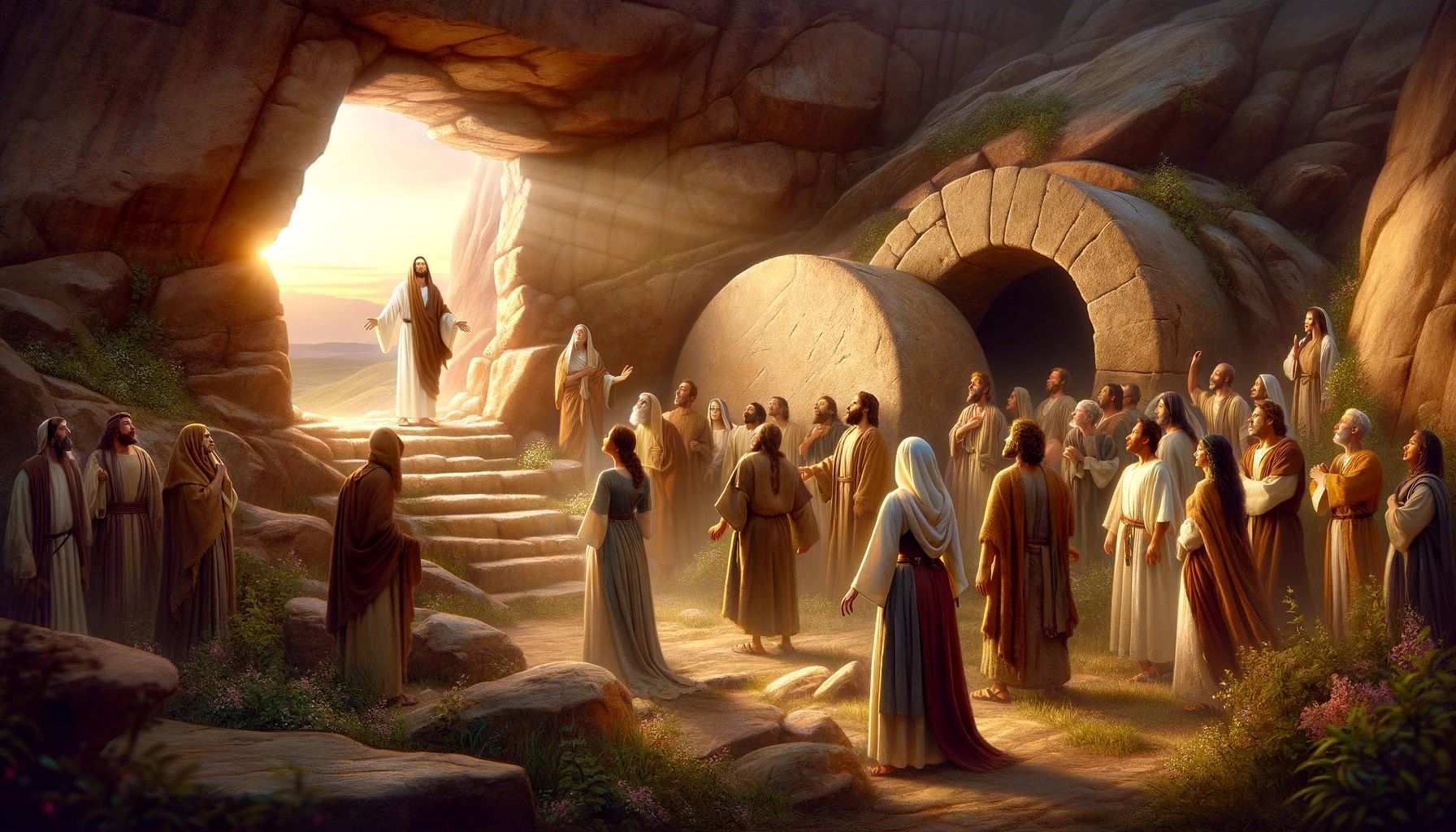

Bible Stories
On What Day Was Jesus Christ Resurrected
Published: March 2, 2024
Ericka Andersen, an editor at Christian.net, expertly merges digital strategy with content creation, focusing on faith and societal issues. Her communication skills enhance the platform's engaging narratives, fostering meaningful dialogue on belief's impact on society.
Discover the biblical account of Jesus Christ's resurrection and the significance of the day he rose from the dead. Explore this and more in our collection of Bible stories.
(Many of the links in this article redirect to a specific reviewed product. Your purchase of these products through affiliate links helps to generate commission for Christian.net, at no extra cost. Learn more)
Table of Contents
The Historical Evidence of Jesus Christ's Resurrection
-
Empty Tomb: One of the most compelling pieces of evidence for the resurrection of Jesus Christ is the discovery of the empty tomb. According to the Gospels, the tomb in which Jesus was buried was found empty on the third day after his crucifixion. This event is significant because it suggests that something extraordinary happened to the body of Jesus.
-
Post-Resurrection Appearances: Following the crucifixion, there were numerous accounts of Jesus appearing to his disciples and other individuals. These appearances were not limited to a single isolated incident but occurred over a period of time and in various locations. The consistency and diversity of these accounts provide strong evidence for the resurrection.
-
Transformation of the Disciples: The transformation of Jesus' disciples from a group of fearful and disillusioned individuals to bold and unwavering proponents of the Christian faith is another compelling piece of historical evidence. This radical change in behavior and conviction is difficult to explain without the reality of the resurrection.
-
Early Christian Beliefs: The early Christian community's unwavering belief in the resurrection of Jesus Christ is evident in the writings of the New Testament and other early Christian texts. The centrality of the resurrection in the preaching and teaching of the apostles underscores its historical significance.
-
Martyrdom of the Apostles: Many of the early followers of Jesus, including the apostles, were willing to endure persecution and martyrdom for their belief in the resurrection. Their steadfast commitment to this belief, even in the face of severe opposition, provides further historical evidence for the reality of the resurrection.
-
Historical Context: The historical context in which the events surrounding the resurrection took place also lends credibility to its occurrence. The accounts of Jesus' resurrection were not written in a vacuum but within a specific cultural and historical setting, adding weight to their historical authenticity.
-
Impact on History: The subsequent impact of the resurrection on history and the development of Western civilization cannot be overlooked. The growth and spread of Christianity, as well as its enduring influence, can be traced back to the historical reality of Jesus Christ's resurrection.
In summary, the historical evidence for the resurrection of Jesus Christ is multifaceted and compelling. The combination of the empty tomb, post-resurrection appearances, transformation of the disciples, early Christian beliefs, martyrdom of the apostles, historical context, and impact on history collectively point to the reality of this pivotal event in Christian faith.
Theological Significance of the Resurrection of Jesus Christ
-
Victory Over Death: The resurrection of Jesus Christ holds profound theological significance as it represents the triumph over death and the grave. In Christian theology, the resurrection is viewed as the ultimate demonstration of God's power over mortality, offering believers the hope of eternal life and the assurance that death is not the end.
-
Atonement and Redemption: The resurrection is intricately linked to the concept of atonement and redemption. According to Christian belief, Jesus' sacrificial death on the cross paid the price for humanity's sins, and his resurrection signifies the fulfillment of this redemptive work. It is through the resurrection that believers are reconciled to God and offered the gift of salvation.
-
Foundation of Christian Faith: The resurrection serves as the cornerstone of the Christian faith, underpinning the core beliefs of Christianity. The apostle Paul emphasizes the centrality of the resurrection in his letter to the Corinthians, stating that if Christ has not been raised, then faith is futile and believers are still in their sins (1 Corinthians 15:17). The resurrection is thus foundational to the Christian gospel and the basis of Christian hope.
-
Defeat of Evil and Sin: The resurrection of Jesus Christ is seen as the decisive defeat of evil, sin, and the powers of darkness. It signifies the ultimate victory of good over evil and the restoration of humanity's broken relationship with God. Through the resurrection, believers are offered the promise of new life and the possibility of transformation and renewal.
-
Assurance of Divine Authority: The resurrection of Jesus Christ validates his divine authority and identity as the Son of God. It serves as a powerful affirmation of Jesus' teachings, miracles, and claims about his relationship with the Father. The resurrection provides the ultimate proof of Jesus' messianic mission and his unique role in God's plan of salvation.
-
Hope for Believers: The resurrection offers believers a profound sense of hope and assurance in the face of suffering, adversity, and the uncertainties of life. It serves as a source of comfort and encouragement, reminding Christians that just as Christ was raised from the dead, they too will experience resurrection and eternal life in the presence of God.
-
Transformation and New Creation: The resurrection of Jesus Christ inaugurates a new era of transformation and renewal. It is the harbinger of a future reality in which all creation will be restored, and believers will be resurrected to dwell in the presence of God in a renewed and perfected state.
In essence, the theological significance of the resurrection of Jesus Christ is far-reaching and foundational to the Christian faith. It encompasses themes of victory over death, atonement and redemption, the foundation of Christian faith, the defeat of evil and sin, assurance of divine authority, hope for believers, and the promise of transformation and new creation.
The Resurrection of Jesus Christ in the Gospels
The resurrection of Jesus Christ is a central theme in the four Gospels of the New Testament, namely Matthew, Mark, Luke, and John. Each Gospel provides unique perspectives and details regarding the events surrounding the resurrection, offering a comprehensive portrayal of this pivotal moment in Christian faith.
1. The Empty Tomb
The Gospels unanimously attest to the discovery of the empty tomb of Jesus. In Matthew 28:1-10, the women who had come to the tomb were greeted by an angel who proclaimed that Jesus had risen from the dead. Mark 16:1-8 similarly recounts the astonishment of the women at the empty tomb and the angelic message of Jesus' resurrection. Luke 24:1-12 and John 20:1-18 also describe the women's encounter with the empty tomb and their interactions with angels and Jesus himself.
2. Post-Resurrection Appearances
The Gospels provide multiple accounts of Jesus' post-resurrection appearances to his disciples and other individuals. In Luke 24:13-35, two disciples encounter Jesus on the road to Emmaus, and in John 20:19-29, Jesus appears to the disciples, including Thomas, in a locked room. These appearances serve to validate the reality of Jesus' resurrection and to reassure his followers of his continued presence and authority.
3. Commission to the Disciples
Following his resurrection, Jesus commissions his disciples to proclaim the good news of the gospel to all nations. This commissioning is recorded in varying forms in each of the Gospels, emphasizing the universal significance of Jesus' resurrection and the mission of the early Christian community to bear witness to this transformative event.
4. Theological Reflections
The Gospels also include theological reflections on the significance of Jesus' resurrection. In Matthew 28:16-20, commonly known as the Great Commission, Jesus asserts his authority over heaven and earth, underscoring the cosmic implications of his resurrection. In John 20:30-31, the purpose of the Gospel of John is explicitly stated as being written so that readers may believe that Jesus is the Christ, the Son of God, and that by believing, they may have life in his name.
5. Fulfillment of Prophecy
The Gospels frequently reference the resurrection of Jesus as the fulfillment of Old Testament prophecies. Matthew, in particular, highlights the connection between Jesus' resurrection and the prophetic anticipation of the Messiah's triumph over death, reinforcing the continuity between the Old Testament scriptures and the events of Jesus' life, death, and resurrection.
The resurrection accounts in the Gospels collectively provide a comprehensive and cohesive narrative of the events surrounding Jesus' resurrection, affirming its historical reality and theological significance within the Christian faith.
The Resurrection of Jesus Christ in Early Christian Writings
Early Christian writings outside of the New Testament provide valuable insights into the belief in the resurrection of Jesus Christ and its significance within the early Christian community. These writings, including the works of the Church Fathers and other early Christian authors, offer a rich tapestry of theological reflections, doctrinal affirmations, and historical attestations to the reality of Jesus' resurrection.
-
Apostolic Fathers: The writings of the Apostolic Fathers, such as Clement of Rome, Ignatius of Antioch, and Polycarp, contain references to the resurrection of Jesus Christ. In his First Epistle to the Corinthians, Clement of Rome emphasizes the resurrection as a foundational belief of the Christian faith, affirming the hope of future resurrection for believers. Similarly, Ignatius of Antioch, in his Epistle to the Trallians, underscores the reality of Jesus' resurrection and its centrality to the Christian message.
-
Justin Martyr: The early apologist Justin Martyr, in his First Apology, presents a robust defense of the resurrection of Jesus Christ. He argues for the historical authenticity of the resurrection, citing the transformation of the disciples and the enduring impact of Jesus' life and teachings as evidence of this pivotal event. Justin Martyr's writings reflect the early Christian conviction in the reality of the resurrection and its foundational role in Christian proclamation.
-
Irenaeus of Lyons: Irenaeus, in his seminal work Against Heresies, expounds on the significance of the resurrection within the framework of Christian salvation history. He emphasizes the bodily resurrection of Jesus Christ as a fundamental tenet of the Christian faith, refuting Gnostic denials of the physicality of the resurrection. Irenaeus' writings contribute to the early Christian theological articulation of the resurrection and its implications for the redemption of humanity.
-
Tertullian: The North African theologian Tertullian, in his treatise On the Resurrection of the Flesh, provides a detailed exposition of the resurrection from a doctrinal and apologetic perspective. He defends the bodily nature of the resurrection and its coherence with Christian eschatological beliefs. Tertullian's writings serve to elucidate the early Christian understanding of the resurrection as a tangible and transformative event in human history.
-
The Apostolic Tradition: The Apostolic Tradition, attributed to Hippolytus of Rome, contains liturgical and doctrinal references to the resurrection of Jesus Christ. The early Christian liturgical practices and creeds embedded in this work reflect the centrality of the resurrection within the worship and communal life of the early Church. The Apostolic Tradition provides a glimpse into the early Christian expressions of faith in the resurrection within the context of worship and discipleship.
These early Christian writings collectively bear witness to the enduring belief in the resurrection of Jesus Christ and its theological significance within the formative period of Christianity. They attest to the foundational role of the resurrection in shaping early Christian doctrine, worship, and apologetic engagements, underscoring its enduring impact on the development of Christian theology and spirituality.
The Debate Over the Date of Jesus Christ's Resurrection
The date of Jesus Christ's resurrection has been a subject of scholarly debate and historical inquiry for centuries. While the event itself is universally acknowledged as the cornerstone of Christian faith, the specific date of the resurrection has been a point of contention among theologians, historians, and biblical scholars. The debate over the date of Jesus Christ's resurrection revolves around various factors, including the interpretation of biblical accounts, the alignment of the resurrection with Jewish and Roman calendars, and the historical context of the events surrounding Jesus' crucifixion and resurrection.
1. Passover and the Jewish Calendar
One of the central issues in the debate over the date of Jesus Christ's resurrection is the correlation between the timing of the resurrection and the Jewish festival of Passover. The Gospels of Matthew, Mark, and Luke all indicate that Jesus was crucified around the time of Passover, leading to differing interpretations regarding the exact date of the crucifixion and subsequent resurrection. The synoptic Gospels portray Jesus' Last Supper with his disciples as a Passover meal, while the Gospel of John places the crucifixion on the day of Preparation for the Passover.
2. Synoptic vs. Johannine Chronology
The discrepancy between the chronology presented in the synoptic Gospels and the Gospel of John has contributed to the divergence of opinions regarding the date of Jesus Christ's resurrection. While the synoptic Gospels suggest that Jesus was crucified on the day of Passover, with his resurrection occurring on the third day thereafter, the Gospel of John places the crucifixion on the day before the Passover meal, leading to alternative interpretations of the timeline of events.
3. Lunar vs. Solar Calendar
Another dimension of the debate over the date of Jesus Christ's resurrection pertains to the reconciliation of the lunar-based Jewish calendar with the solar-based Roman calendar. The determination of the date of Passover in the Jewish calendar, which follows a lunar cycle, and its alignment with the Roman calendar, which follows a solar cycle, has implications for establishing the precise timing of Jesus' crucifixion and resurrection within the broader historical and cultural context.
4. Historical and Astronomical Considerations
Historical and astronomical analyses have also been employed in the quest to ascertain the date of Jesus Christ's resurrection. Some scholars have sought to integrate astronomical data, such as lunar phases and celestial events, with historical records and biblical accounts to propose specific dates for the crucifixion and resurrection. These interdisciplinary approaches aim to harmonize the chronological details provided in the Gospels with external sources of information.
5. Theological Implications
The debate over the date of Jesus Christ's resurrection extends beyond historical and chronological inquiries to encompass theological implications. The significance of the resurrection as the culmination of Jesus' redemptive mission and its association with the festival of Passover imbues the discussion with theological significance, prompting reflections on the interplay between historical precision and theological interpretation.
In summary, the debate over the date of Jesus Christ's resurrection encompasses a range of historical, chronological, theological, and cultural considerations, reflecting the enduring interest in understanding the precise timing of this pivotal event in Christian faith. While scholarly investigations continue to explore the complexities of this debate, the theological significance of the resurrection transcends the intricacies of historical dating, underscoring its enduring impact on Christian belief and practice.


